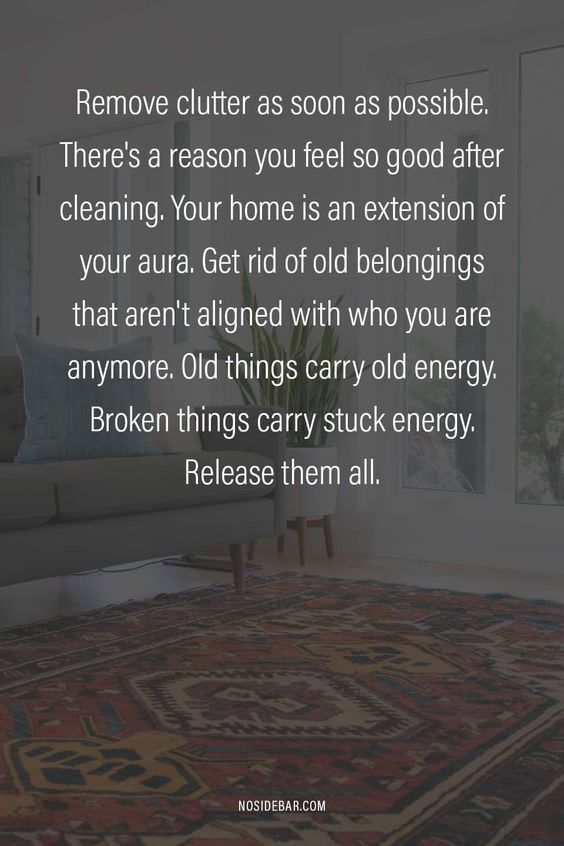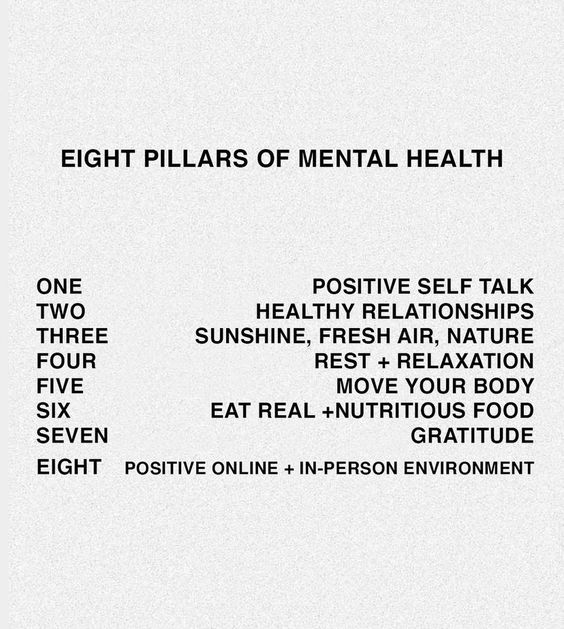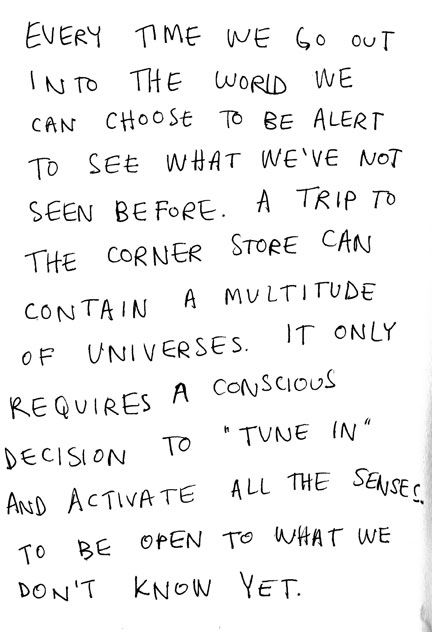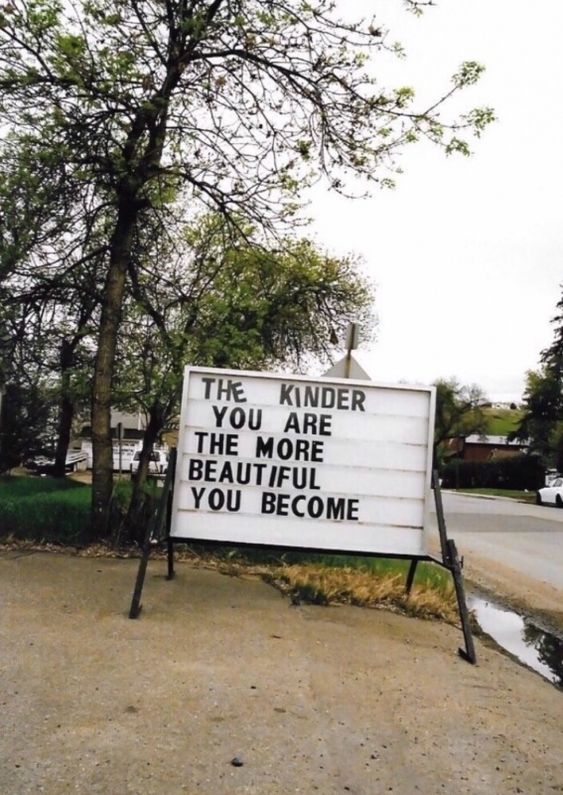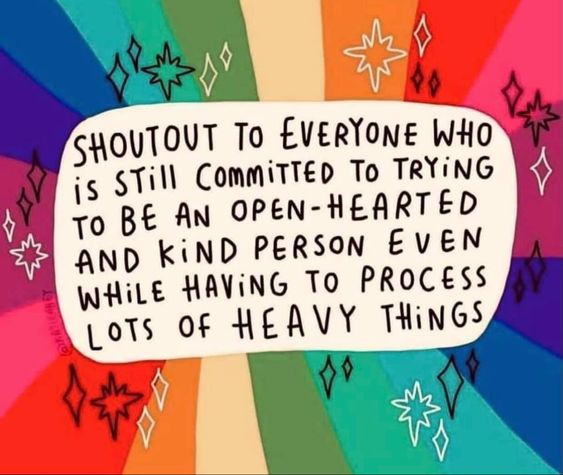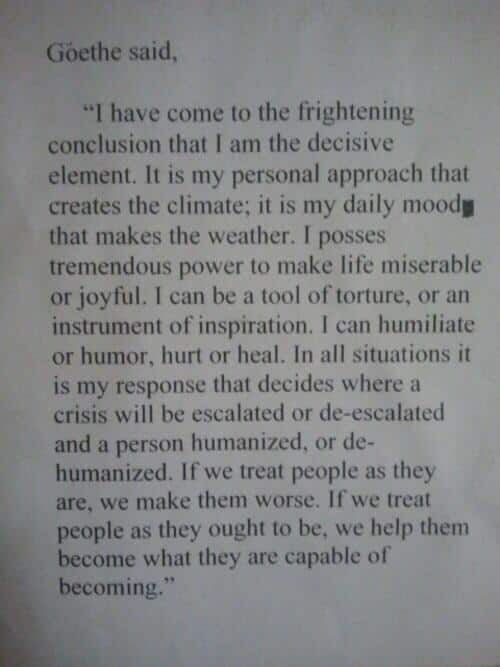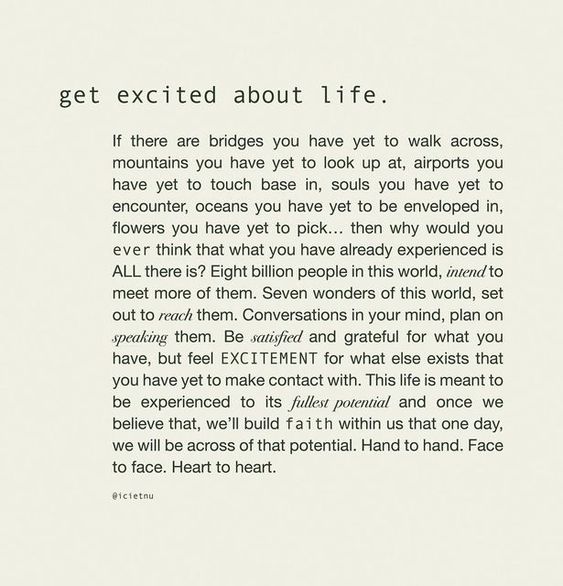“More than anything else, being able to feel safe with other people defines mental health; safe connections are fundamental to meaningful and satisfying lives. The critical challenge in a classroom setting is to foster reciprocity: truly hearing and being heard; really seeing and being seen by other people. We try to teach everyone in a school community—office staff, principals, bus drivers, teachers, and cafeteria workers—to recognize and understand the effects of trauma on children and to focus on the importance of fostering safety, predictability, and being known and seen. We make certain that the children are greeted by name every morning and that teachers make face-to-face contact with each and every one of them. Just as in our workshops, group work, and theater programs, we always start the day with check-ins: taking the time to share what’s on everybody’s mind.”
Bessel van der Kolk, The Body Keeps The Score (Page 354) | ★ Featured on this book list.
“People who feel safe and meaningfully connected with others have little reason to squander their lives doing drugs or staring numbly at television; they don’t feel compelled to stuff themselves with carbohydrates or assault their fellow human beings. However, if nothing they do seems to make a difference, they feel trapped and become susceptible to the lure of pills, gang leaders, extremist religions, or violent political movements—anybody and anything that promises relief.”
Bessel van der Kolk, The Body Keeps The Score (Page 353) | ★ Featured on this book list.
“As long as we feel safely held in the hearts and minds of the people who love us, we will climb mountains and cross deserts and stay up all night to finish projects. Children and adults will do anything for people they trust and whose opinion they value. But if we feel abandoned, worthless, or invisible, nothing seems to matter. Fear destroys curiosity and playfulness. In order to have a healthy society we must raise children who can safely play and learn. There can be no growth without curiosity and no adaptability without being able to explore, through trial and error, who you are and what matters to you.”
Bessel van der Kolk, The Body Keeps The Score (Page 352) | ★ Featured on this book list.
“Sooner or later the outer poverty is going to disappear—we now have enough technology to make it disappear—and the real problem is going to arise. The real problem will be inner poverty. No technology can help.”
Osho, Everyday Osho (Page 47)
“Many psychiatrists today work in assembly-line offices where they see patients they hardly know for fifteen minutes and then dole out pills to relieve pain, anxiety, or depression. Their message seems to be ‘Leave it to us to fix you; just be compliant and take these drugs and come back in three months—but be sure not to use alcohol or (illegal) drugs to relieve your problems.’ Such shortcuts in treatment make it impossible to develop self-care and self-leadership.”
Bessel van der Kolk, The Body Keeps The Score (Page 351) | ★ Featured on this book list.
“People can learn to control and change their behavior, but only if they feel safe enough to experiment with new solutions. The body keeps the score: If trauma is encoded in heartbreaking and gut-wrenching sensations, then our first priority is to help people move out of fight-or-flight states, reorganize their perception of danger, and manage relationships.”
Bessel van der Kolk, The Body Keeps The Score (Page 351) | ★ Featured on this book list.
“No AI can ever replicate the feeling of July. The joy of freshly-made jam. The beauty of wildflowers climbing up your walkway. And, the way it feels when there is still so much possibility in the air. If you’ve been craving new possibility for yourself—my suggestion for you is this: Stop searching. Stop scrolling. Stop browsing. And go outside. Bring a notebook. Sit with nature. And ask yourself a simple question: What do I really want to do???“
Ash Ambirge
“When we feel anxious about something, the most natural human response is to avoid it. We know that if we stay away, we’ll feel safe, for now. But avoidance not only maintains anxiety, it makes it worse over time… The things you do most of the time become your comfort zone. So, if you want to feel less anxious about something, do it as often as you can.”
Julie Smith, Why Has Nobody Told Me This Before?
“Thoughts are not facts. They are a mix of opinions, judgements, stories, memories, theories, interpretations, and predictions about the future… Just as thoughts are not facts, feelings are not facts either. Emotions are information, but when that information is powerful, intense and loud, as emotions can be, then we are more vulnerable to believing in them as a true reflection of what is going on. I feel it therefore it must be a fact. Emotional reasoning is a thought bias that leads us to use what we feel as evidence for something to be true, even when there might be plenty of evidence to suggest otherwise.”
Julie Smith, Why Has Nobody Told Me This Before?
“In today’s world your ZIP code, even more than your genetic code, determines whether you will lead a safe and healthy life. People’s income, family structure, housing, employment, and educational opportunities affect not only their risk of developing traumatic stress but also their access to effective help to address it. Poverty, unemployment, inferior schools, social isolation, widespread availability of guns, and substandard housing all are breeding grounds for trauma. Trauma breeds further trauma; hurt people hurt other people.”
Bessel van der Kolk, The Body Keeps The Score (Page 350) | ★ Featured on this book list.
“Traumatized people are afraid of conflict. They fear losing control and ending up on the losing side once again. Conflict is central to theater—inner conflicts, interpersonal conflicts, family conflicts, social conflicts, and their consequences. Trauma is about trying to forget, hiding how scared, enraged, or helpless you are. Theater is about finding ways of telling the truth and conveying deep truths to your audience. This requires pushing through blockages to discover your own truth, exploring and examining your own internal experience so that it can emerge in your voice and body on stage.”
Bessel van der Kolk, The Body Keeps The Score (Page 337)
“Unlike his experience with the numerous therapists who had talked with him about how bad he felt, theater gave him a chance to deeply and physically experience what it was like to be someone other than the learning-disabled, oversensitive boy that he had gradually become. Being a valued contributor to a group gave him a visceral experience of power and competence. I believe that this new embodied version of himself set him on the road to becoming the creative, loving adult he is today.”
Bessel van der Kolk, The Body Keeps The Score (Page 333)

